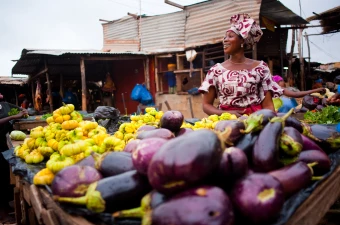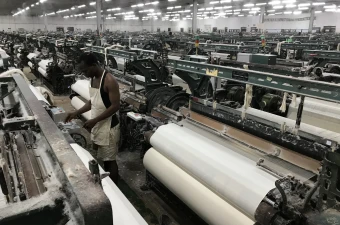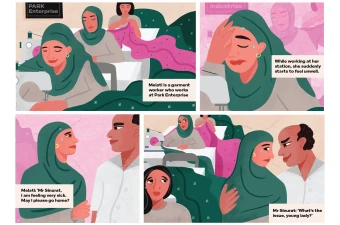The story about 'ligne verte'
Cases of violence and harassment in the workplace are still very prevalent and appear to be intensifying. Sadly, its victims choose to remain silent out of fear of retribution from their harassers and victimisers.
To counter this, the Centre d’écoute et d’Accompagnement CAPJ/COSI offers a free helpline for women in Benin who are survivors of violence and harassment in the workplace.
In Benin, 69% of women and girls have faced various forms of gender-based violence (physical, verbal and psychological, sexual) and devastating traditional practices.
This interview by Elisabeth Cameo has been published in Vice Versa
TESTIMONY
With a slight smile on her face, Françoise, 41 years old, testifies (under a false name): "To overcome, you have to confront. I had to face up to the challenge, for my children and for myself. After suffering in silence for years, I had to find help. That is how I came to the Centre d'Accompagnement psychosocial et juridique (CAPJ). Today, I am a survivor.
In March 2007, Françoise, then 26, was hired as the executive secretary to the director of a private transit and transportation company in Benin. Three years later, her boss -the owner of the company- began his sexual harassment. Sexual harassment in the workplace accounts for some 20% of gender-based violence cases in the country.
"One day he called the office from his house and asked me to bring him some papers. When I arrived, I found him home alone. That's when he sexually abused me. It was the first time, and it lasted for nine years. He threatened me, telling me that if I told anyone, something would happen to me.
From that day on, she continues, he would sometimes arrange to send the others on errands to make sure he was alone with her, and subject her again and again to his abuse. The first attack was in October 2010.
The last, in late November 2019. "When someone you respect a lot abuses you, you lose something. Me, I lost my courage and confidence. I had no system to support me at the time, and the depression came on, because I was always afraid of losing my job. I suffered in silence until I met my partner.
"My tormentor almost destroyed my life and my children's lives. They didn't go to school for a year because I couldn't afford it."
In February 2021, two years after the last assault, she finally found the courage to confide in her partner and quit. She sought help after hearing a friend tell her about CAPJ. But she didn't get there until August.
Today, her case is in the hands of the vice squad. "At the center, they listened to me, offered me psychological help. And they provided me with a lawyer. It was comforting. I felt protected, supported.
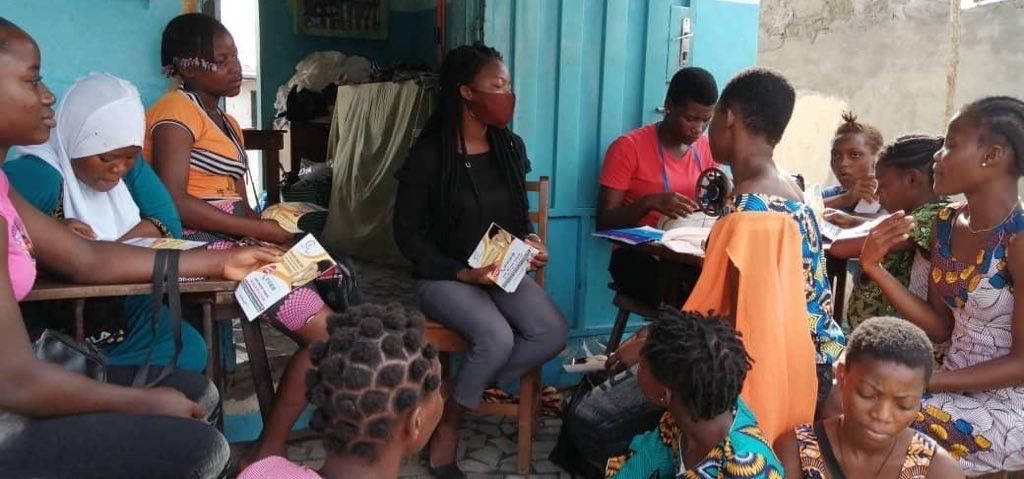
Marilyne (center) in an awareness meeting with a group of young girls who are taking a sewing course.
"The next step was the court hearing," explains Marilyne Sourou, head of the Center for Psychosocial and Legal Support. "In the meantime, we are waiting for a meeting with the lawyer hired on his behalf by COSI-Benin."
CAPJ is part of COSI-Benin (Confederation of Independent Trade Union Organizations of Benin). It is the COSI that set up the Center, with the help of its Dutch partner, CNV Internationaal, in response to the growing number of women and girls who are victims of harassment at work.
Lack of respect for women's rights remains the norm. In case of violence, they have no access to justice, or only with great difficulty.
It functions as a listening and reconciliation center, offering legal services in situations of conflict in the workplace. Located in Cotonou, the Center gives a place to victims of violence and harassment in the workplace and learning environment. These victims are listened to, counseled and guided psychologically and legally. They receive health care when necessary.
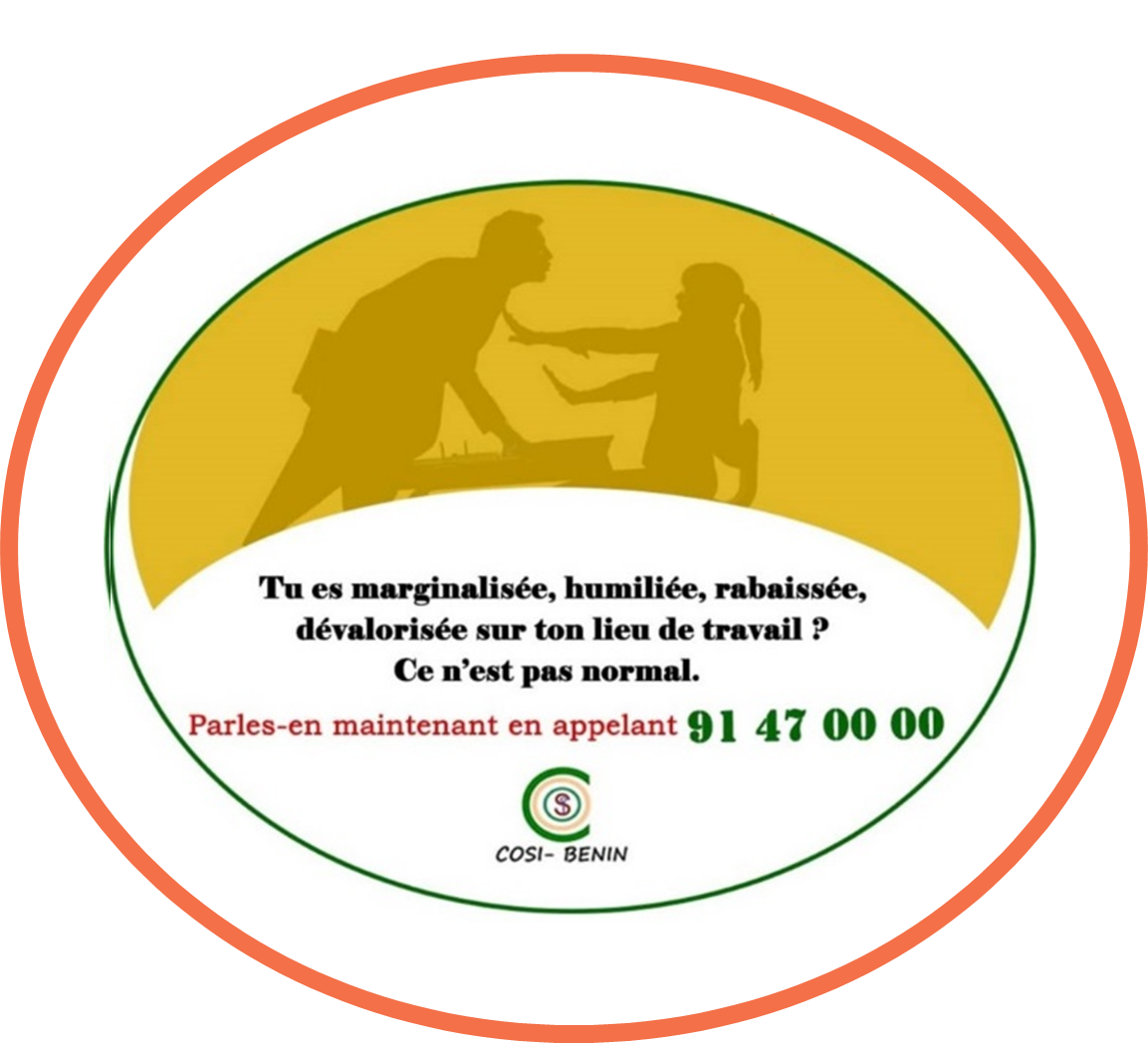
Announcement of the green line of the Psychological and Legal Assistance Center of the Confederation of Independent Trade Unions COSI Benin
The only listening platform
Survivors throughout Benin can reach the Center by calling the toll-free number 91 47 00 00. It is the only listening platform in the entire country, established for the sole purpose of helping survivors of workplace harassment. "The line is free of charge for subscribers of the most popular telephone operators in Benin. Through this line, CAPJ registers complaints and supports victims and survivors according to their geographical location," says Ms. Sourou.
By using this free line, they hope to break the omerta that surrounds sexual harassment of women and girls in the workplace. Benin, like many African countries, has a legal framework for the prevention and repression of gender-based violence, as stipulated in Law 2011-26 of January 9. But these laws often remain dead letters.
"When someone you respect very much abuses you, you lose something. I lost my courage and my confidence.
"Lack of respect for women's rights remains the norm. In cases of violence, they have no access to justice, or only with great difficulty. Laws in favor of women are loosely enforced, if at all," she explains.
One of COSI-Benin's tasks is to advocate for the ratification of Convention C190, which condemns all forms of violence in the workplace, including sexual harassment.
In Benin, 69% of women and girls have been victims of various forms of gender-based violence (physical, verbal and psychological, sexual) and devastating traditional practices. And for 20% of them, it is a case of economic violence.
As a trade union organization, COSI-Benin has also created the National Women's Commission, whose goal is to combat sexual harassment in the workplace by informing and sensitizing women about their rights and the country's legal framework.
"From 2020 to today, CAPJ has registered 157 complaints, including cases of sexual harassment, physical violence and threats. All of these cases were in the workplace.
FRANCOISE'S TESTIMONY (continued)
Now I have the support of the Center, but I hope to gain the support of the judicial institutions, because I am looking for justice, I want my tormentor to answer for his acts".
Today, Françoise is one of those women that the Center has helped to find answers and seek justice. She no longer considers herself a victim, but a survivor.
"There was a time in my life when I thought about killing myself, but I told myself that was not the way out. With three children, I had to ask for help from COSI-Benin.
Now I have the support of the Center, but I hope to gain the support of judicial institutions, because I am looking for justice, I want my tormentor to answer for his actions," she adds.
"My tormentor almost destroyed my life and that of my children. They didn't go to school for a year, because I couldn't afford it."
As for the long-term effects of repeated abuse over such a long period of time, she says there is no greater challenge. "I hope that justice will be served and that my tormentor will be punished for his crimes.
I am still unemployed and financially dependent on my partner and family. I can't imagine going back to work for a male boss. Maybe one day, but not yet.
Those in power need to understand what is happening; they need to listen, to support us. When you suffer abuse, you become vulnerable and you need all the support you can get. I trust the system and hope that my tormentor will be duly convicted.
"From 2020 to the present, CAPJ has recorded 157 complaints, including cases of sexual harassment (mostly in domestic work settings), sexual violence, physical violence and threats. All of these cases in workplaces.
Two court cases are currently underway. Legal services are provided free of charge to survivors and victims through a partnership with a buffet of lawyers whose costs are covered by COSI-Benin, with support from CNV Internationaal. "This was put in place when we realized that most women rarely get justice because they cannot afford the legal fees," says Sourou.
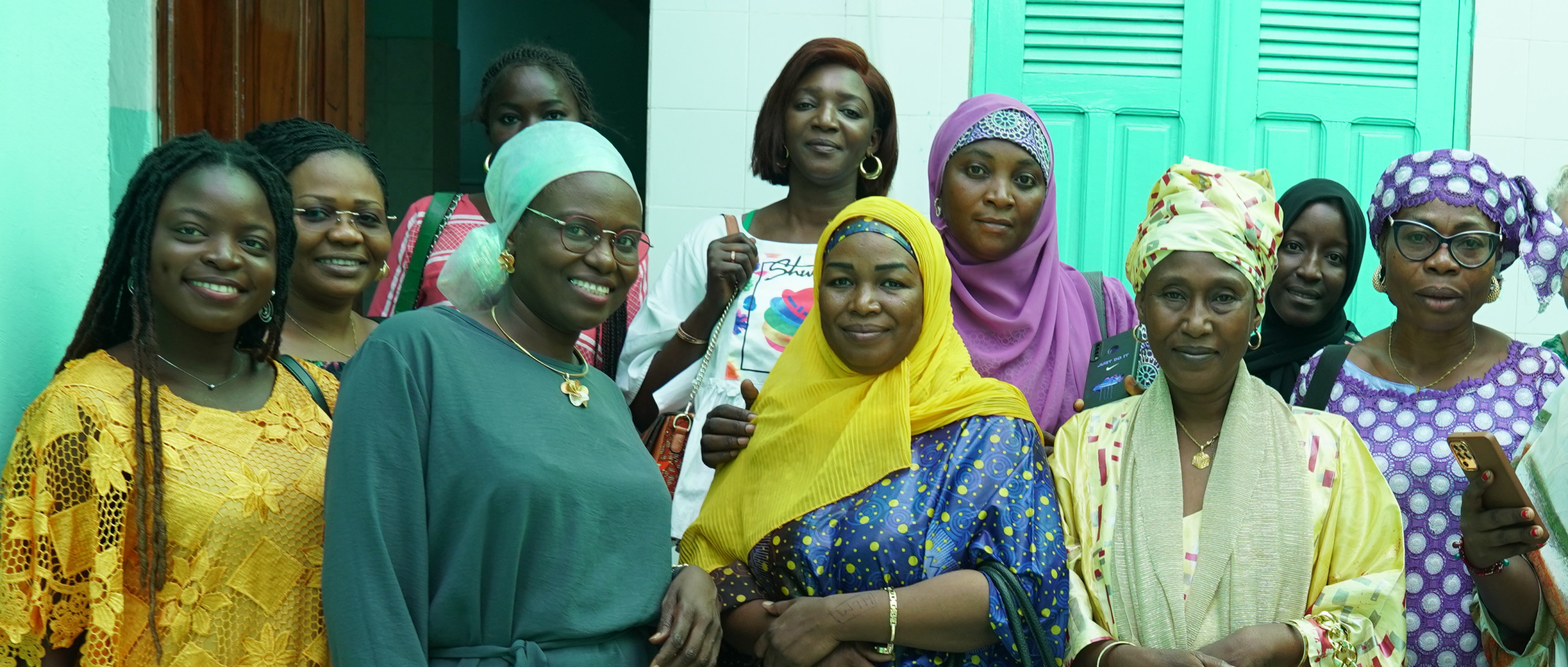
Marilyne Sourou, facilitator of the Center (left) during an exchange of experiences with women from trade unions in Benin, Niger and Senegal
The helpdesk approach
She explains that in terms of the Centre's listening role, survivors who come for help are received in confidence, listened to, and their complaints are recorded. "Then, the Center advises and informs.
Emergency measures are taken if necessary and the person is informed about the legal system and her rights. We discuss possible measures and refer women to the most appropriate service, legal or psychological."
Admittedly. the CAPJ does not have the capacity to offer holistic care, but Sourou says the center has an agreement with the social promotion centers. These specialized public agencies have the resources to help victims and survivors.
Despite the creation of the Green Line, there is still a lot of ground to cover in order to make its services accessible throughout the country. To this end, CAPJ has organized awareness and sensitization workshops in the south and north of Benin, as well as information programs broadcast on radio and television.
Lack of respect for women's rights remains the norm. In case of violence, they have no access to justice, or only with great difficulty.
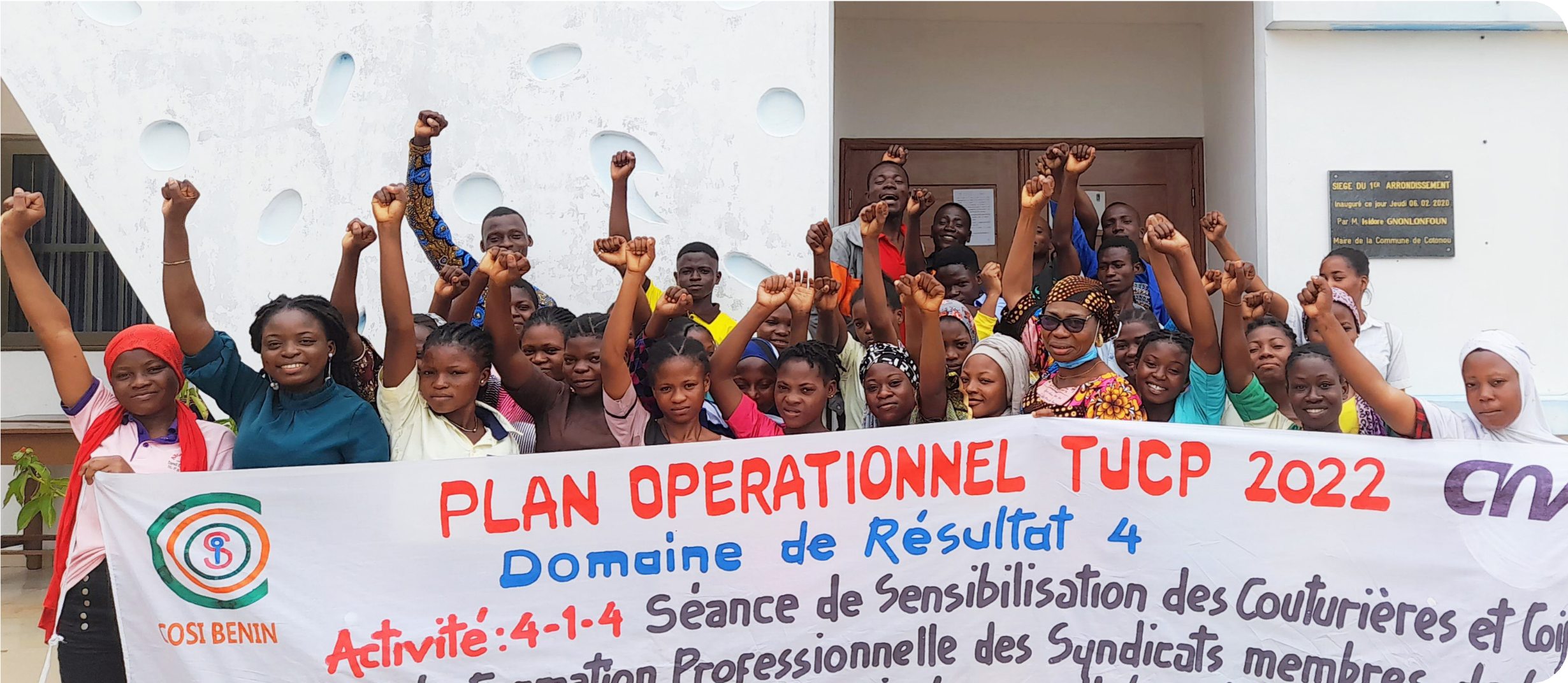
The support of CNV Internationaal allows COSI Benin to organize awareness sessions
GBV in the news
Forum brings together professionals
They also tap into the power of social networks. "A WhatsApp forum was created in January 2021. It is a meeting point for information and awareness called.'GBV, let's talk about it'. It brings together media professionals, anti-gender-based violence activists, lawyers, opinion makers and union leaders. With 200 members, the forum holds discussions on topics related to workplace violence and the ILO Convention 190 and Recommendation 206 on violence and harassment in the workplace."
It's really hard for victims of violence to speak out in the workplace.
But the biggest challenge, Sourou says, is breaking the silence. "Our cultural context is not conducive to that. It's really hard for victims of violence to come forward in the workplace.
Beyond the culture, they are afraid of being unemployed, or not being protected enough from their tormentors. And because court cases are long and drawn out, they don't always have the resilience and strength to deal with them. Also, right now, CAPJ is not yet widely known or accessible to all, and we lack technical resources." But none of that stops them from fighting the good fight.
She is confident that the current government of Benin is on the right track to address the problem of GBV in the workplace. She also believes that the ratification of Convention 190 and Recommendation 206 by her country will be very useful in her fight. However, she adds:
"The most important thing is that women who suffer under the weight of silence break it and free themselves."
THE IMPORTANCE OF TOLL-FREE LINES
Toll-free lines play a vital role in allowing those in distress or in need of psychosocial support to communicate on their terms and at their time.
The confidentiality of the calls gives people a sense of control, allowing them the freedom to talk about issues that would be risky to discuss face-to-face.
Calling a Green Line is a great way to be heard and to receive solid advice on how to deal with a problem.
Translation with permission of an article by Elizabeth Kameo appeared in Vice Versa on the topic of gender-based harassment and bullying
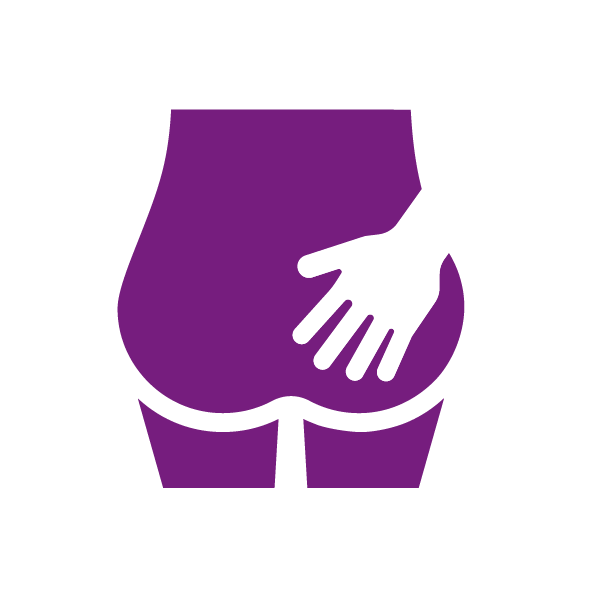
Publication date 30 03 2023
